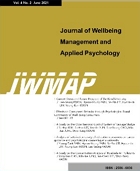- 권한신청
- E-ISSN2586-6036
- KCI
The Types and Management of Differentiating Consumption depends on the social class of Korean consumers
Abstract
This paper presents two social and academic studies on the boundary between cultural production and consumption. The first line of the study on cultural omnivore analyzes the choice of heterogeneous audiences in the face of various cultural offerings. The second line is a study of market categories, which analyzes the responses of peer audiences to objects with different levels of category code compliance. As such, this paper developed a heterogeneous audience model to evaluate objects of different types. This allows us to consider two dimensions of cultural preference: diversity and orientation of selection. To this end, this paper proposes a new analytical frame work to map consumption behavior on these two dimensions. The results suggest that one type of target that values diversity and transformation is particularly resistant to those that span boundaries. We test this argument in the analysis of two large data sets on film and restaurant reviews. Overall, our findings can extend beyond cultural consumption. Outline variability of contextual individuals or individuals in the same situation can cross cultural boundaries even if they are not intentionally pursuing such hybridism.
- keywords
- Category Boundaries, Omnivorities, Heterogeneity, Diversity
- 다운로드 수
- 조회수
- 0KCI 피인용수
- 0WOS 피인용수














